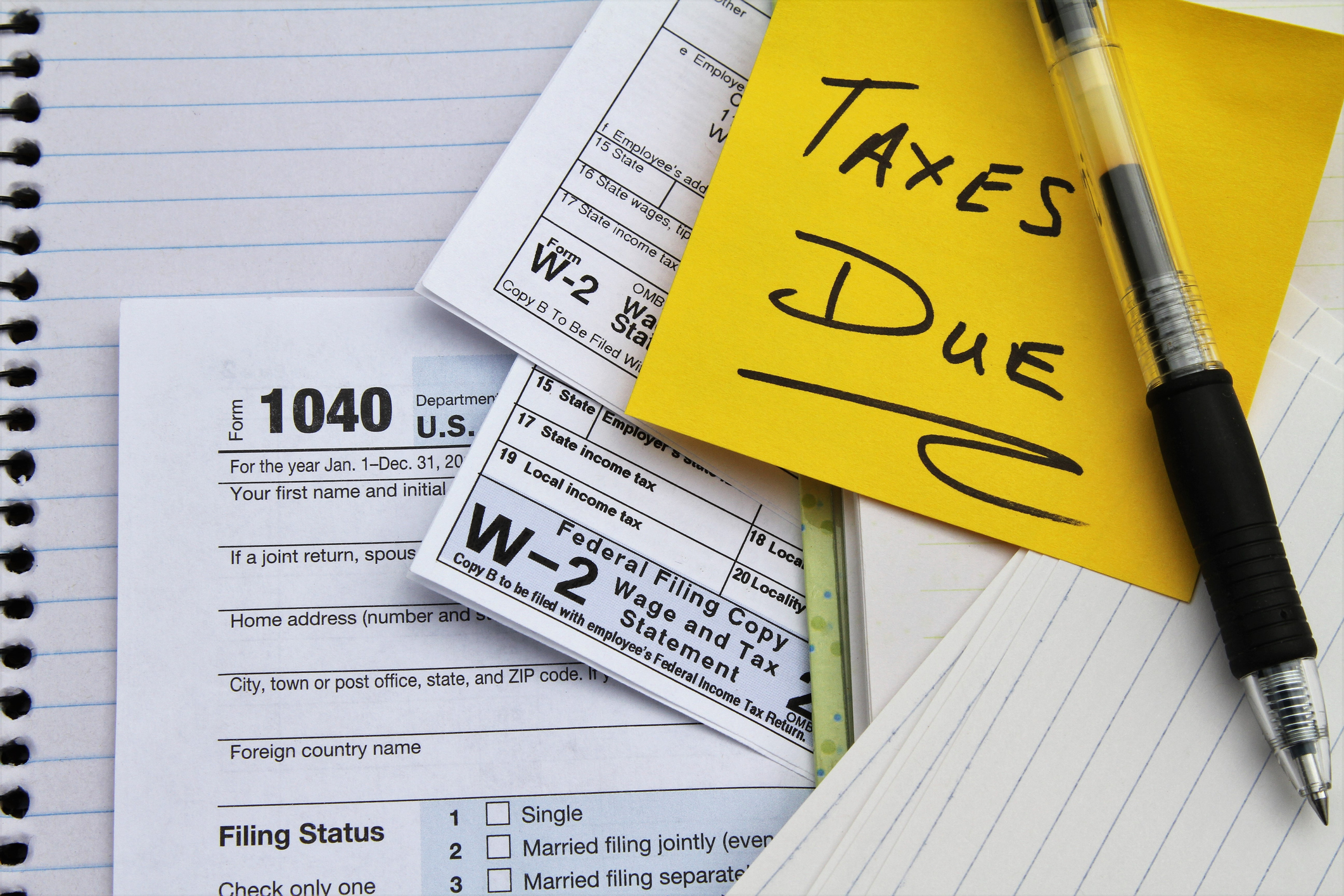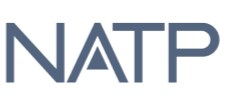IRS Currently Not Collectible Status (CNC)
When you have a significant tax debt, the Internal Revenue Service may use aggressive collection actions to recover what you owe. But if you’re facing financial hardship, IRS Currently Not Collectible Status (CNC) can provide immediate breathing room by pausing garnishments, levies, and collection letters while you stabilize your finances.
What Is IRS Currently Not Collectible (CNC) Status?
Currently Not Collectible is a tax relief status the IRS assigns when you can’t pay your taxes after covering necessary living expenses. Part of the Fresh Start Program, CNC is a temporary status that generally stays in place until your financial situation changes or improves. It does not remove your tax debt, but you are not required to make payments while in CNC status – and the IRS will not engage in collection actions.
That means:
- Collections pause: The IRS generally won’t tax levy your paycheck or bank account or send aggressive collection letters while you remain eligible.
- No monthly payments required during hardship.
- Interest and penalties keep accruing until the balance is resolved.
- The IRS may file or maintain a Notice of Federal Tax Lien to protect the government’s interest.
- You’ll typically receive an annual reminder notice about the balance (that’s normal).
CNC is a temporary hardship status. The IRS can re‑review your finances and restart collections if your situation improves.

Who Qualifies for CNC Status?
To qualify for Currently Not Collectible status, you must meet specific IRS criteria and demonstrate genuine financial hardship. Specifically, if the IRS determines that making payments on your tax debt would prevent you from covering your basic living expenses, you may be eligible for CNC status.
Before your application can be considered, the IRS may require you to comply with current tax filings. That means filing any missing tax returns from previous years.
Once you are fully compliant, the IRS will evaluate several CNC eligibility requirements:
- Income (wages, self‑employment, Social Security/benefits, unemployment, etc.)
- Necessary living expenses measured against IRS Allowable Expense Standards (housing, utilities, food, transportation, health care, insurance, child care)
- Assets and equity (bank accounts, vehicles, property, investments)
- Special circumstances (medical events, disability, job loss, disaster, caring for dependents)
The IRS will consider these factors and determine the amount of money you can access from equity in assets, as well as your remaining monthly income after basic living expenses. If your situation clearly meets the qualifications, the IRS will place you in a Currently Not Collectible status, immediately stop all collection activities, and not require you to make any payments towards your tax debt.
You’re more likely to qualify when your verified income barely covers (or falls short of) allowable expenses, and you lack accessible equity to pay the debt.
For any questions about your eligibility for the CNC program, please contact a TaxRise specialist. Based on your tax history and current financial situation, we can provide a free tax consultation to determine if you may qualify for this resolution.
Is IRS Non Collectible Status Right For Me?
Currently Non Collectible status is for people facing severe financial hardship. The IRS uses strict eligibility requirements to determine if you qualify. Non-Collectible status may be your best option if you’re facing these situations:
- Your monthly income barely covers essential living costs.
- You have limited assets.
- Attempting to pay your tax liability will cause significant financial distress.
- You are impacted by bank levies, wage garnishments, or asset seizures.
- You don’t have a realistic way of paying off your tax debt.
How to Apply: Quick Roadmap
We’ll handle the heavy lifting, but here’s the roadmap:
- Get compliant: File any past‑due returns and fix withholding/estimated taxes going forward.
- Document your finances: Complete a Collection Information Statement—usually Form 433‑F for individuals (sometimes 433‑A for wage earners/self‑employed, or 433‑B for businesses)—and gather proof (paystubs, bank statements, lease/mortgage, utility and insurance bills, medical costs, child support orders, etc.).
- Present your case: Provide your statements and documentation to the IRS; respond to follow‑ups. If an agent suggests a payment you can’t afford, you’re allowed to explain why even a small payment would cause hardship.
- Stay available: The IRS may request updates or a quick recheck later. We keep you prepared so reviews are low‑stress.
Ready to apply? Follow the full instructions in our guide: How to Apply for IRS Currently Not Collectible Status
What the IRS May Ask For
To evaluate your eligibility for Currently Not Collectible (CNC) status, the IRS may request financial documentation such as Form 433-F, 433-A, or 433-B, along with proof of income, expenses, and debts—like pay stubs, bank statements, and housing or utility bills—and confirmation that you’re current on tax filings and payments. For a full list of required documents, read our Step-by-Step CNC Application Guide.
If the IRS questions your hardship or suggests an unaffordable payment, you can request a managerial review or appeal certain collection actions, and TaxRise will represent you throughout the process.
Benefits & Limitations of CNC Status
Being placed in CNC status by the IRS provides critical tax relief, especially when you’re struggling to make ends meet. This temporary status allows you to focus on what matters most—stabilizing your finances and well-being.
Here are some benefits that CNC provides:
- A pause on IRS collection activities
- Time to recover and improve your financial situation
- Your assets are protected from IRS collection actions
- Establish compliance with the IRS
- If your CNC status extends past the Collection Statute Expiration Date (CSED), your tax debt may be written off
What CNC doesn’t do
- It doesn’t erase your debt
- Interest and penalties continue each month
- The IRS may file/maintain a federal tax lien
- Refunds may be offset and applied to the balance
- The IRS can re‑review annually and remove CNC if your ability to pay returns
CNC is a pressure release valve, not the finish line. We use it strategically while building the best long‑term resolution for you.
Important Considerations About IRS CNC
While using non-collectible status provides an immediate pause in IRS collections and monthly payments, there are limitations to consider. Above all, this is a temporary solution, and there are ongoing factors and obligations, including:
- The IRS can review your CNC status annually.
- Interest and penalties will continue to accrue on your tax liability.
- Any future tax refunds will be applied to your outstanding tax debt.
- You must remain compliant with filing tax returns and paying new tax liabilities.
- Tax liens can still be filed in certain circumstances.
CNC and the 10-Year Statute of Limitations (CSED)
How CNC Affects the IRS Collection Clock
Many taxpayers ask how the IRS uncollectible status statute of limitations works. The short answer: being in Currently Not Collectible (CNC) status does not stop the IRS’s 10-year statute of limitations on collections—known as the Collection Statute Expiration Date (CSED). While you’re uncollectible, the IRS pauses enforced collection actions like levies or wage garnishments, but the 10-year collection clock keeps running in the background. Once the CSED expires, the IRS generally can’t collect after 10 years, and your tax debt becomes legally unenforceable.
Can the IRS Collect After 10 Years in CNC?
Generally, no. Once the CSED passes, the IRS loses its legal authority to pursue collection, even if your account was in CNC. However, certain rare events—like specific appeals or bankruptcies—can extend the CSED. Those are technical exceptions covered in our separate articles on the IRS statute of limitations.
Certain actions can suspend or extend the clock (for example, some appeals, bankruptcy, time outside the U.S., or specific agreements). For more information exceptions to the statute of limitations, read: 7 Exceptions to the IRS Statutes of Limitations Rule That Spell Trouble
Why Strategy Still Matters
CNC can be a smart short-term shield if you truly can’t pay, but it’s not a permanent fix. Interest and penalties continue, and your financial situation will be reviewed periodically. If your hardship lasts long-term, staying in CNC until the 10-year limit could allow your tax debt to expire naturally. If your situation improves, transitioning to an Installment Agreement or Offer in Compromise may be better than waiting out the statute.
The Bottom line: The IRS uncollectible status statute of limitations can work in your favor if managed carefully. At TaxRise, we review your CSED timelines, confirm whether any clock extensions apply, and build a resolution plan—whether that’s maintaining CNC or moving toward full forgiveness when time runs out
Can I Be Denied CNC?
Yes, the IRS can deny Currently Not Collectible status if your financial information shows that you have the means to pay. This might happen if your income exceeds allowable living expenses, or if you have accessible assets such as home equity, savings, or investments that could be used to satisfy your tax liability. The IRS also looks closely for inconsistencies between what you report and your actual lifestyle—things like recent luxury purchases, expensive travel, or signs of hidden cash flow can raise red flags. Failing to file required tax returns or falling behind on current tax obligations can also jeopardize your eligibility.
If the IRS determines you don’t meet the hardship criteria, there are still other solutions. Depending on your situation, we might recommend an Installment Agreement, a Partial-Payment Installment Agreement, or an Offer in Compromise—each designed to help you resolve your tax debt in a manageable way. At TaxRise, we’ll guide you toward the program that offers the best long-term relief while protecting your financial stability.
Staying in CNC (and Avoiding Setbacks)
Once you’ve earned CNC status, maintaining it takes diligence. Continue filing your tax returns on time—missing even one can add penalties and signal noncompliance to the IRS. Review your withholding or estimated tax payments regularly to ensure you don’t build new balances that could remove your hardship status. If your circumstances change—like starting a new job, receiving a raise, or selling assets—report those changes promptly. The IRS conducts periodic financial reviews using third-party data, so it’s best to stay proactive and transparent.
Keep your financial documents organized and up to date so any required review goes smoothly. Above all, remember that life changes quickly. When it does, we’ll adjust your tax resolution plan before the IRS steps in, helping you stay protected and in control of your financial future.
Why Work With TaxRise To Secure My Currently Not Collectible Status?
At TaxRise, we see more than your balance—we see your story, your resilience, and your potential to rise above financial hardship. Our mission is to make the tax relief process simple, human, and empowering. Every case is led by experienced tax professionals, enrolled agents, and dedicated specialists who work as one team to build the strongest possible defense for your financial future.
From the start, we take the time to understand your full financial picture and prepare a complete hardship case, including the right Form 433 and supporting documentation, so the IRS sees exactly why you qualify for relief. While we handle communication with the IRS, you can focus on your life and goals. We’ll help protect your income by pausing collection efforts, ensuring your assets stay safe while we negotiate a lasting resolution.
As a leader in tax resolution, TaxRise is one of the top companies that help with Currently Not Collectible Status. Our team carefully maps your Collection Statute Expiration Dates (CSEDs) and crafts a personalized plan that leads you toward long-term freedom—whether that’s maintaining your CNC status or transitioning into a permanent solution like an Offer in Compromise. Even after approval, we stay by your side through reviews, financial changes, and every new chapter ahead.
You don’t have to take our word for it. Explore our Success Stories to see how we’ve helped clients nationwide find relief and rebuild their futures. And discover our TaxRise Guarantee—our promise of integrity, transparency, and unwavering dedication to your success.
Ready to begin? Get a free consultation today. Let’s build your path from hardship to freedom—together.
Qualify today for a Fresh Start.
Learn how easy it is to resolve your tax problems.
Frequently Asked Questions
When the IRS places you in Currently Not Collectible (CNC) status, it means the agency recognizes you can’t pay your tax debt without serious financial hardship. During this time, the IRS will pause most collection actions such as wage garnishments, levies, and seizure notices. Your debt still exists, and both interest and penalties continue to accrue, but CNC gives you space to regain financial stability without pressure from the IRS.
There’s no specific time limit on how long you can remain in CNC status. As long as your financial situation continues to meet the IRS’s hardship standards, your status will stay in place. The IRS generally reviews your income and expenses each year to ensure you still qualify, and if your financial condition improves, they may remove your account from CNC and restart collection activity. Some taxpayers remain in non-collectible status until the Collection Statute Expiration Date (CSED), when their tax liability effectively "expires".
Generally, no—being in Currently Not Collectible status does not extend the IRS’s 10‑year Collection Statute Expiration Date (CSED). This means the clock on your debt continues to run even while you’re in CNC. If you remain in hardship until that 10‑year period expires, the IRS may write off the remaining balance entirely. However, certain events like bankruptcy or appeals can temporarily pause that clock, so it’s important to have professionals monitor your specific timeline.
Currently Not Collectible (CNC) status doesn’t erase your tax debt—it simply pauses IRS collection activity while you’re unable to pay. However, the 10-year Collection Statute Expiration Date (CSED) continues to run during this time. Once that 10-year period passes, the IRS legally loses the right to collect the debt, and any remaining balance is written off automatically. This means that if you remain in the CNC program for the entire duration of your CSED, your tax liability effectively expires.
Keep in mind, though, that certain actions—like filing for bankruptcy, requesting an installment agreement, or moving abroad—can pause or extend that 10-year clock. At TaxRise, we track your CSED carefully to make sure you stay protected and understand exactly when your tax debt could be permanently forgiven.
Yes, the IRS can still file or maintain a federal tax lien even if you’re in Currently Not Collectible status. A lien protects the government’s claim to your assets but doesn’t mean active enforcement is happening. CNC itself doesn’t appear on your credit report, but if a lien is filed, it could affect your ability to get loans or mortgages. Our team can help you understand when a lien might be filed and what steps you can take to minimize its impact.
If your income or assets increase significantly, you’re required to report those changes to the IRS. The agency will review your updated financials to see if you can now afford payments toward your tax debt. If you no longer qualify for CNC, the IRS will notify you, and together we can explore other solutions, such as an Installment Agreement, Partial‑Payment Installment Agreement, or an Offer in Compromise to help you stay on track.
Yes, the IRS will notify you if it deems you no longer eligible for the Currently Not Collectible status. If your IRS CNC status is removed or expired, you can negotiate a different resolution depending on your financial situation.
Yes, in most cases the IRS will keep any future tax refunds and apply them to your outstanding balance while you’re in CNC status. This offset continues each year you remain in non‑collectible status. Although this can be frustrating, it helps reduce your debt balance over time and shows the IRS that you’re still addressing what you owe.




